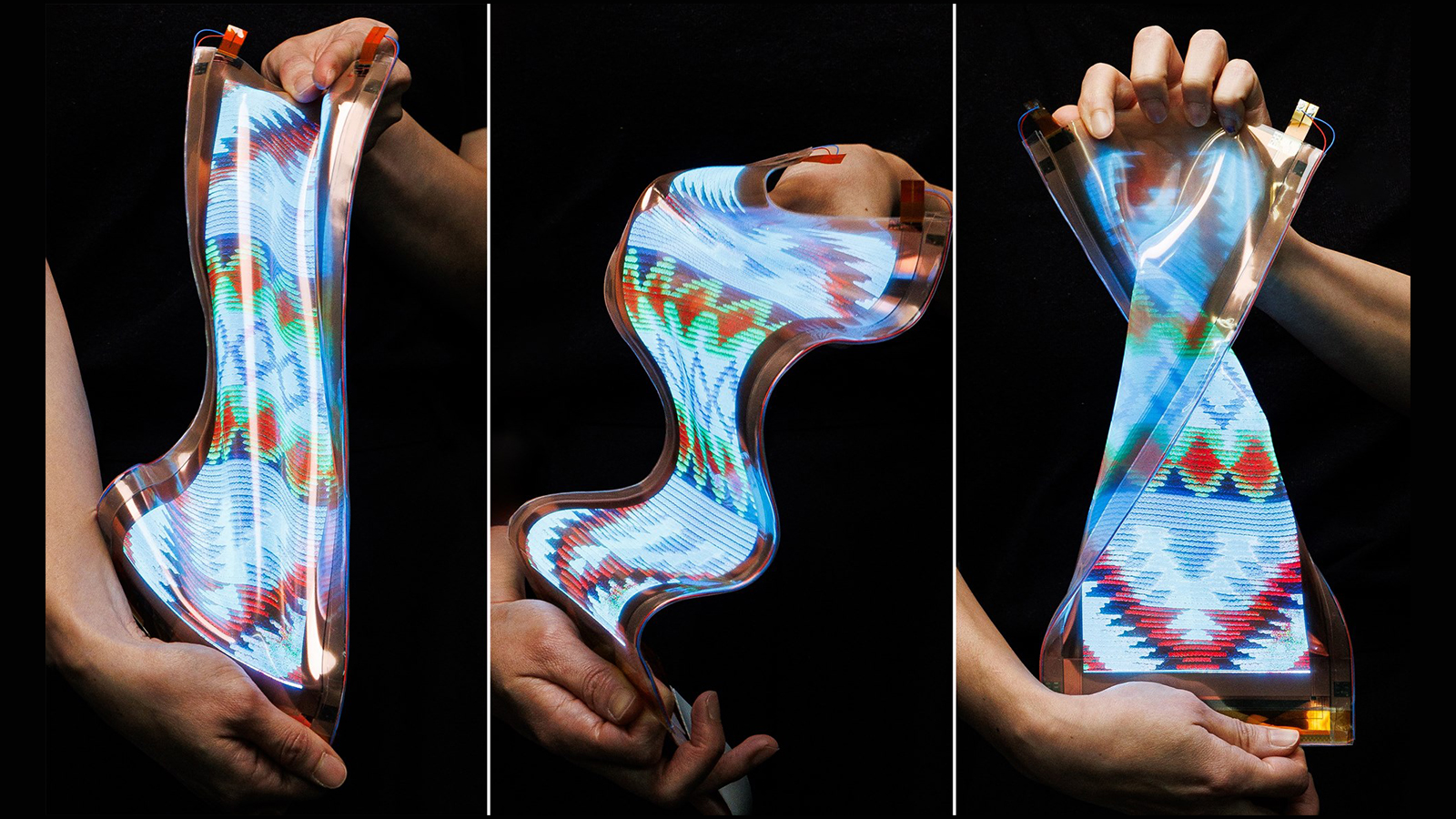
LG Display, one of the global leaders in display technologies, unveiled a new stretchable display prototype that can expand by up to 50%. This makes it the most stretchable display in the industry, more than doubling the previous record of 20% elongation. LG Display showcased the new screen at the LG Science Park in Seoul as part of the Stretchable display national project, with over 100 stakeholders taking part in the event.
This stretchable technology goes beyond expanding its size, though, as you can freely twist, extrude, and fold it without damaging the screen. This gives the technology a limitless number of applications — from clothing and wearable technologies to extruded touchable automotive panels. LG even showed a concept where the stretchable display is sewn or attached directly to firefighter uniforms and displays real-time information to the rest of their team.
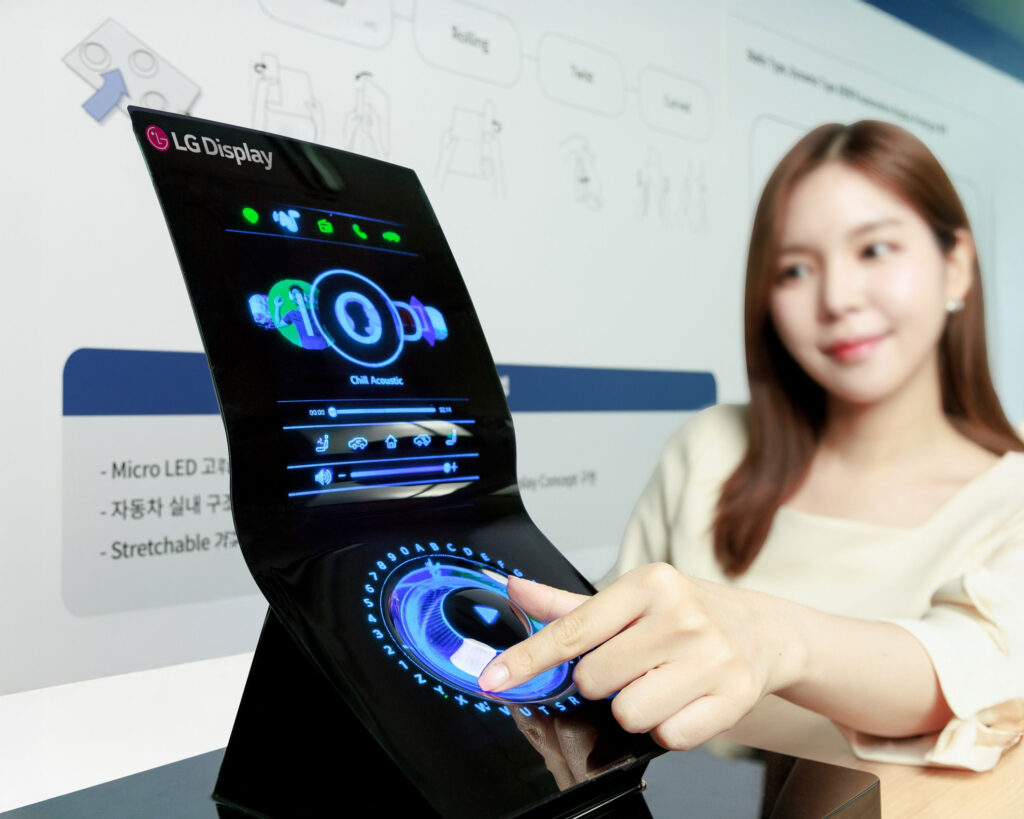
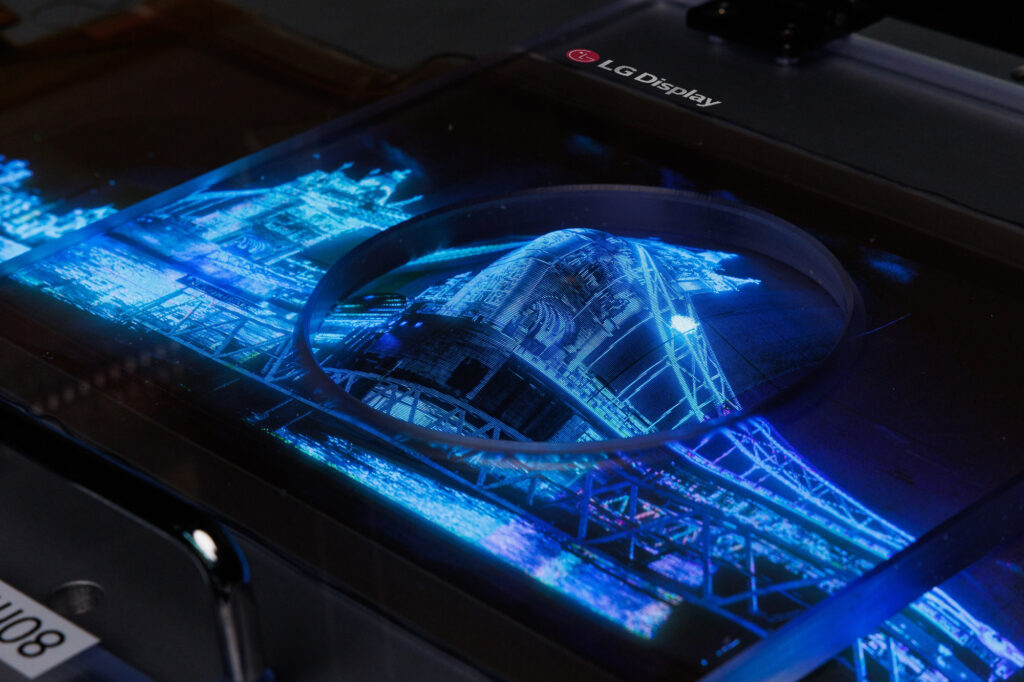
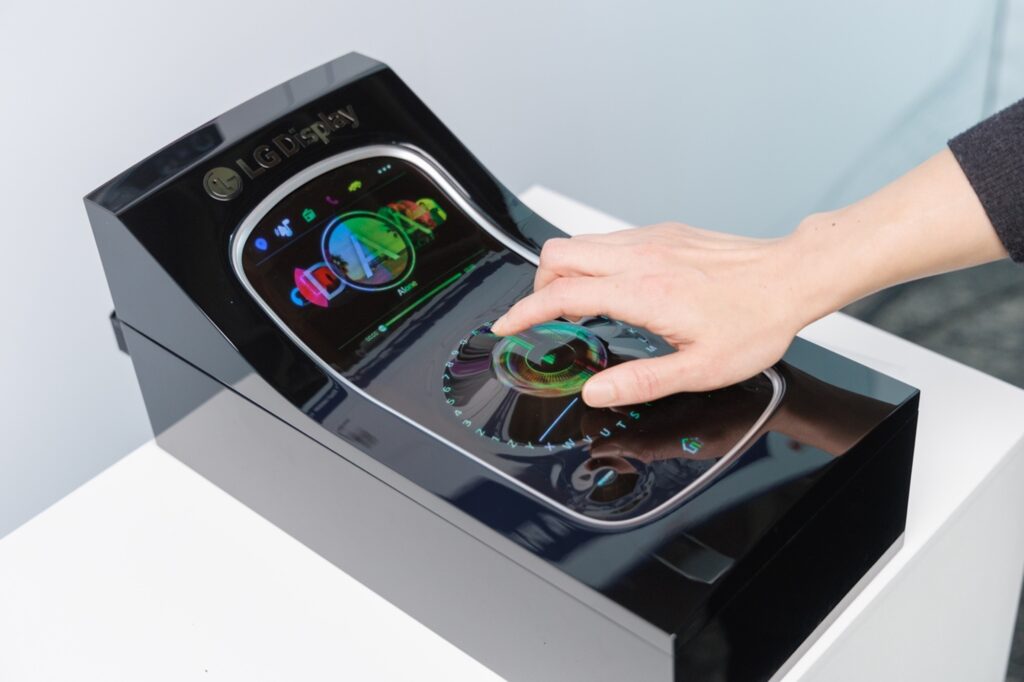
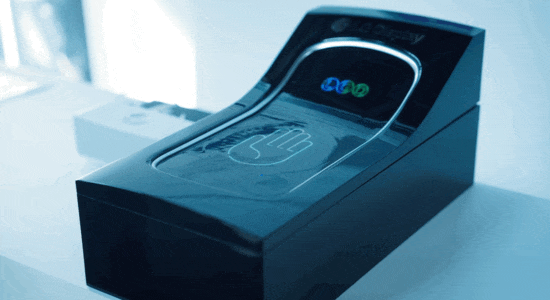
The prototype being flexed in the top image is a 12-inch screen with a 100-pixel-per-inch resolution and full RGB color that expands to 18-inches when pulled. LG Display said that it based the stretchable display on a “special silicon material substrate used in contact lenses” and then improved its properties for better “stretchability and flexibility.” It also used a new wiring design structure and a micro-LED light source, allowing users to repeatedly stretch the screen over 10,000 times with no effect on image quality.
The Stretchable display national project is one of the programs spearheaded by the South Korean Ministry of Trade, Industry, and Energy (MOTIE) and the Korea Planning & Evaluation Institute of Industrial Technology. This move has allowed LG Display and South Korea to gain a foothold in the next-generation display market, as well as ensuring that the research, development, and manufacturing supply chain will benefit local companies and organizations. In fact, aside from LG Display which took the lead, the current stretchable display prototype involves over 19 domestic industry and research institutions. So, its commercial success will likely benefit the South Korean economy as a whole.
MOTIE's initiative has allowed LG Display to produce this groundbreaking screen, showing how crucial government support can be in developing advanced technologies. This is similar to how the U.S. government is funding semiconductor research with the CHIPS Act. And although Washington is playing catch up with South Korea, Taiwan, and China, its massive investment will hopefully pay off within the next ten years.







